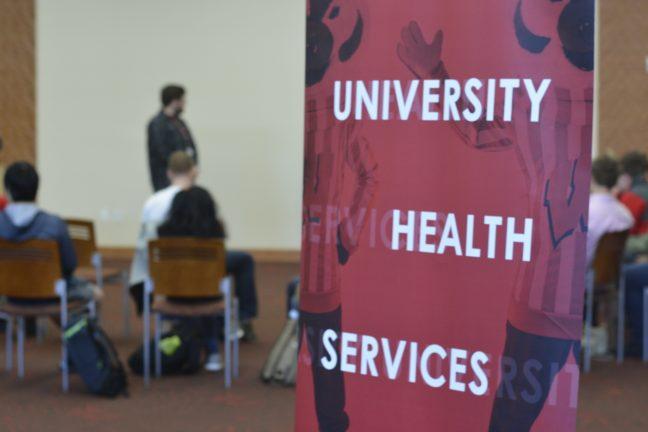A 2015 survey from the Association of American University’s Sexual Misconduct and Sexual Assault Climate Survey, unveiled the realities of sexual violence on the University of Wisconsin campus.
Since then, the university has taken part in multiple initiatives in an attempt to combat the climate of sexual assault on campus as well as provide resources to victims, such as the first-year violence prevention workshops.
Rejecting silence: Student survivors take control, speak out on sexual violence
Most students arriving at UW know sexual assault is a burgeoning issue on college campuses, Samantha Johnson, violence protection manager at University Health Services, said. But, she believes the first-year violence prevention workshops are of utmost importance for educating students further.
Johnson said she is “confident” in the resources and programs offered currently at UW.
“There are a lot of resources on and off campus that are available to victims seeking healing and guidance,” Johnson said.
Currently, UW requires first-year — and for the first time this year, graduate and professional students — to participate in online workshops such as the U Got This! Program, and further in-person workshops like the GetWise seminars.
UHS replaces Tonight program, looks to broaden conversation about sexual violence
“These programs reinforce the information students have learned and build upon the foundation they may have in knowledge regarding sexual assault,” Johnson said. “We want to shift students’ attitudes to decrease adherence to rape supportive myths, such as rape only happens by strangers and alcohol causes assault.”
Along with resources and education for students, the university provides there a number of confidential resources and services for students who have been directly affected, Johnson said.
The Survivor Services unit at UHS includes a team of victim advocate counselors who are specifically trained to provide support to victims, Johnson said. Victims can meet individually with counselors or in support groups.
Jamie Temple, the interim coordinator for UHS Survivor Services team, said survivors are the only ones who truly know their own experiences. Because of this, she hopes programs like the Survivor Services team will empower survivors to make their own choices for their healing and future.
“We believe that healing is possible and that by supporting a student’s autonomy and recognizing that their survivorship is part of one of their intersecting identities, they will gain a sense of hope and agency,” Temple said.
‘Finally taking action’: Greek community to implement first major plan to address sexual assault
While UW has been trying to improve the infamous “one in four” statistic, there is still room to improve, Johnson said. UW has recently begun requiring graduate and professional students to also take part in training, including key prevention activities while using the same online program as first-year students.
The UW System has also convened a task force that trains its employees similarly to how first-year students receive training, and parents of first-year students also receive a brief training when their child attends SOAR.
The overall goal of these resources are different for each victim, Johnson said.
“Each resource helps victims with a different part of their healing process,” Johnson said. “For some, the goal is that they stay in university, for others it finding ways to cope and manage the trauma they are experiencing. Doing so while trying to remain a good student is quite a challenge.”














